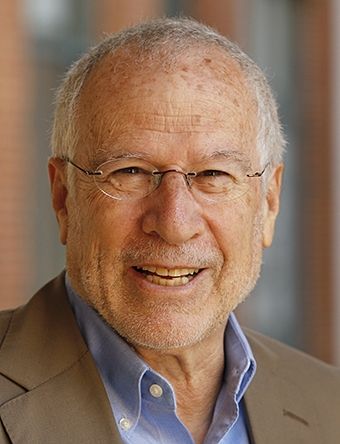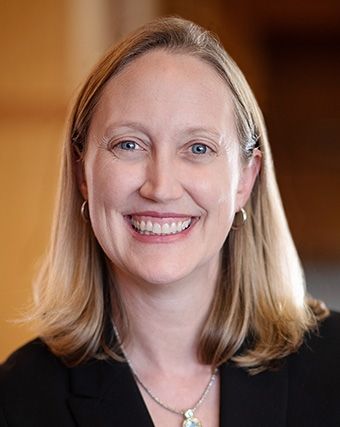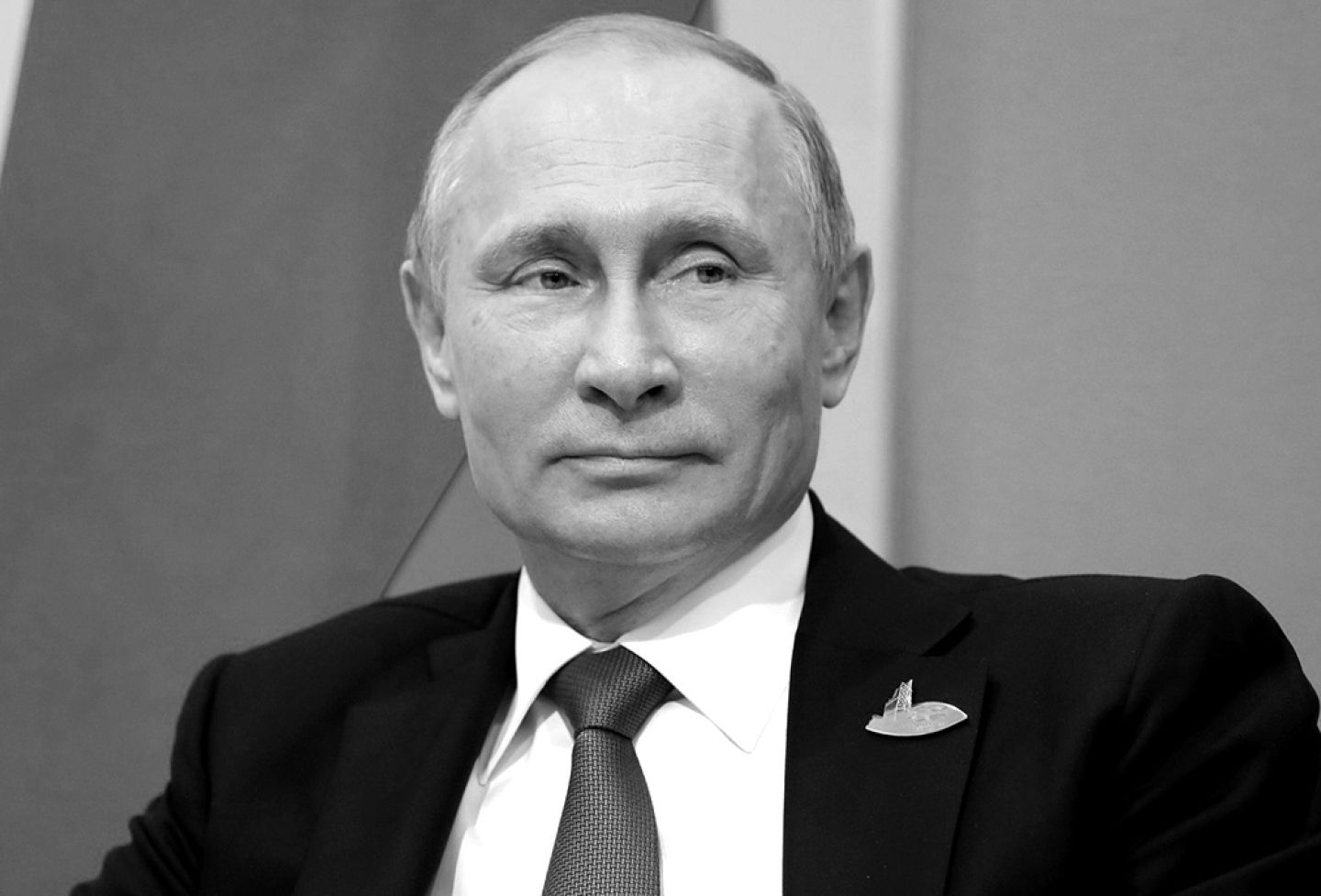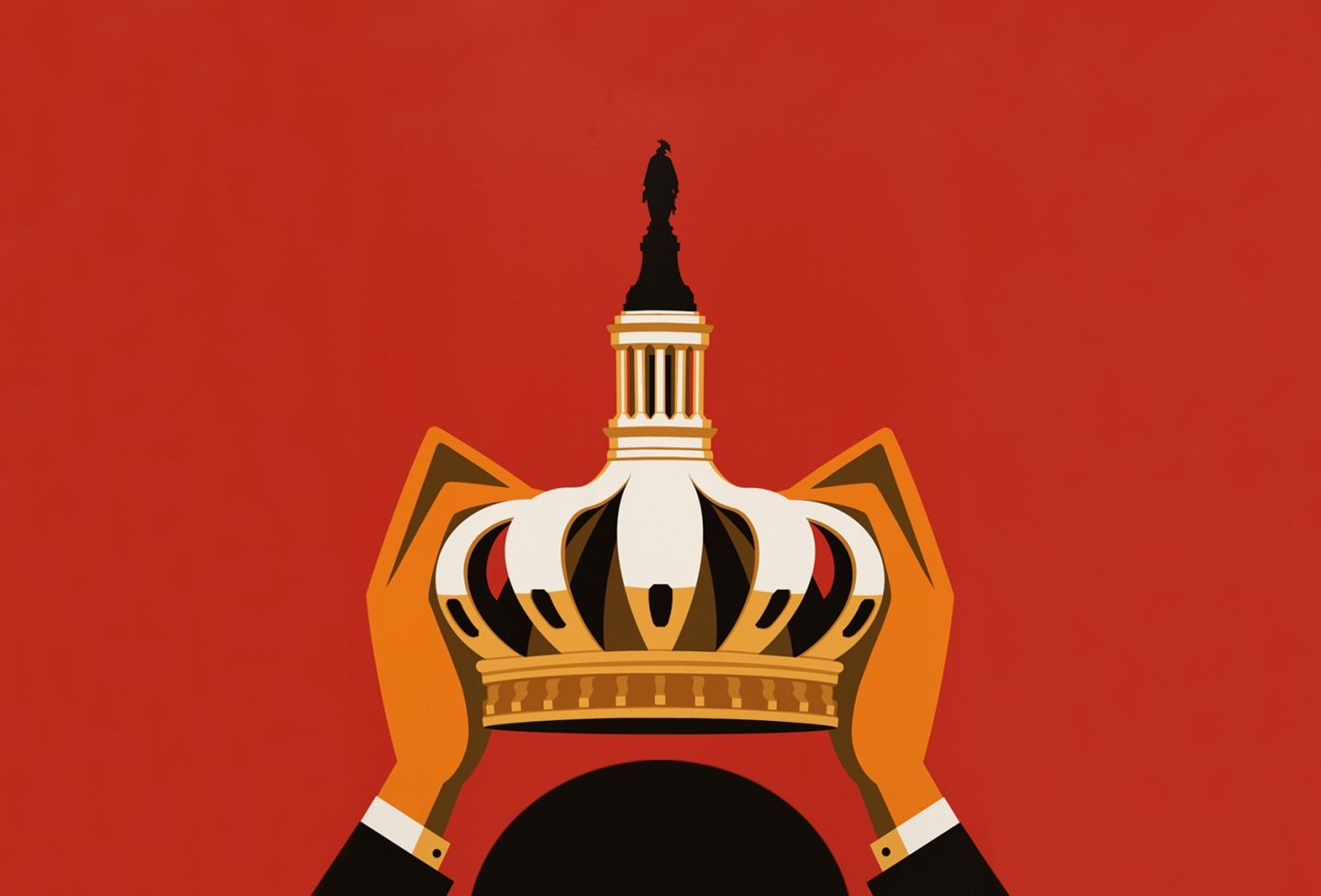You know that whole “marketplace of ideas” concept that says if you hear all arguments the best will win out?
Well, it’s a bunch of hooey.
That’s the take of Professor Frederick Schauer and Vice Dean Leslie Kendrick ’06, two of the Law School’s experts on the First Amendment, who see the current proliferation of lies in the media landscape — perhaps most audaciously in the form of altered videos and other fake news — as disrupting the marketplace of ideas theory and putting democracy on a dangerous path.
“I have long been skeptical of the often-touted but rarely analyzed virtues of public deliberation or public discourse as a route to truth, knowledge, sound public policy, etc.,” Schauer said. “I’m also of the view that our current First Amendment theory and doctrine doesn’t deal very well with verifiable concrete fact.”
In the United States, the press enjoys protections unrivaled in the rest of the world, and speech related to politics is the most protected within the media.
But Kendrick said the media landscape has come a long way since the U.S. Supreme Court case New York Times Co. vs. Sullivan, which restricts the ability of public officials to sue for defamation and creates the intentionally high standard of “actual malice” to receive damages. (The standard means a publisher must have known the information was false upon publishing it, or the risk that it was false.)

Frederick Schauer
News consumers’ choices are no longer restricted to newspapers, radio and three major television networks. Now, anyone can be a “journalist” because of the ease of publishing and disseminating information via the internet — making it easier to spread malicious rumors. The old rules of the road, it seems, no longer hold.
Despite the frequent citing of Sullivan in subsequent free-speech cases, “What the justices are not saying in Sullivan is that lies have First Amendment value,” Kendrick stressed.
Schauer said the U.S. might be a lot less tolerant of falsehoods in the media today — and more in line with other liberal industrialized democracies — if it weren’t for the 12-year period in the courts starting with Sullivan.
From that 1964 decision to 1976, when the justices ruled in Virginia State Board of Pharmacy v. Virginia Citizens Consumer Council Inc. that free-speech protections apply to commercial speech, there was a string of transformative court decisions broadly protecting speech, he said.
The early winners were often left-leaning social activists protesting the Vietnam War or for greater civil rights. In more recent years, however, bearers of antiliberal messages, often meant to shock or provoke, have received similar protections to those engaging in traditional public debate. Schauer noted that it is legal, for example, to depict a woman in high heels appearing to crush a puppy.
<p>While acknowledging that there may be a “liberal hypoc­risy” discussion worth having in terms of whose speech is protected, Schauer said that conversation shouldn’t include absolute tolerance for flat-out lies.</p>
<p>Kendrick and Schauer both took aim at the 2012 Supreme Court ruling in <em>United States v. Alvarez</em>, which struck down California’s Stolen Valor Act, a law that had made it a crime to falsely claim earning military medals. Justice Anthony M. Kennedy, writing for a 6-3 majority, stated that speech that doesn’t cause a grave and imminent threat shouldn’t be curtailed.</p>

Leslie Kendrick ’06
“The court there says much more protective things about false speech,” Kendrick said. “The only way to punish it is through fraud, perjury or by causing some discrete harm. That’s a real break with past precedent.”
Schauer said most of the everyday harm that comes from protecting false statements comes in the form of defamation — but that wider repercussions should also be considered.
“Even in the case of Alvarez, there is an interesting question about whether the proliferation of falsity with no remedies for it may create a large social or political harm, even absent of harms to particular individuals,” he said.
Lies can potentially sway elections, even topple governments. At the very least, they can make us skeptical as to the true outcomes of our democratic processes.
“I think on a lot of fronts, the First Amendment is under new pressure,” Kendrick said. “It’s a time for a rethinking of how we came to those decision points in the first place.”
While they weren’t prescribing solutions, Schauer said he would be comfortable with some form of “recalibration.” For example, he questioned whether public figures outside of the political realm — the football placekicker or the television chef — shouldn’t have more recourse when harmed by speech.
The professors said it also may be worth focusing attention toward media’s new gatekeepers, the social media platforms, which have the ability to spread misinformation like fire in a dry forest. These gatekeepers might also possess the tech to help solve the problem.
<p>“I could imagine some sort of content-neutral regulation about what technological tools have to be used,” Kendrick said.</p>
<p>Schauer most recently laid out his criticism of the market­place of ideas for the 2017 endowed lecture “Free Speech, the Search for Truth, and the Problem of Collective Knowledge.” The article broadens criticism he set out years earlier in articles such as “Facts and the First Amendment” and “Dis­course and Its Discontents.” He also recently<a href="/commonlaw/show-notes-lowdown-libel"> spoke about <em>New York Times Co. v. Sullivan </em>for the UVA Law podcast “Com­mon Law.”</a> He is a David and Mary Harrison Distinguished Professor of Law.</p>
<p>Kendrick is the author of the recent paper “Lies and Free Speech Values.” She is the David H. Ibbeken ’71 Research Professor of Law.</p>
More Stories on What’s Next for Democracy
- ’20 Questions with Trevor Potter ’82, President of the Campaign Legal Center
- Professor Deborah Hellman Examines Quid Pro Quo Demands
- Professor Michael Gilbert Says Study Reveals Impact of Voter ID Laws
- Democracy+UVA: Karsh Center Explores Key Issues, Professors in CLEAR
- Karin Lips ’09 Founded Org Supporting College Women Who Lean Right
- Katie Townsend ’07 and Jennifer Nelson ’11 Protect Free Speech
- Professor Saikrishna Prakash’s New Book Examines Modern Executive Reach
- U.S. Rep. Sean Patrick Maloney ’92 Reflects on Two Impeachments
- Professor Mila Vesteeg Looks at Executive Overstay Worldwide



